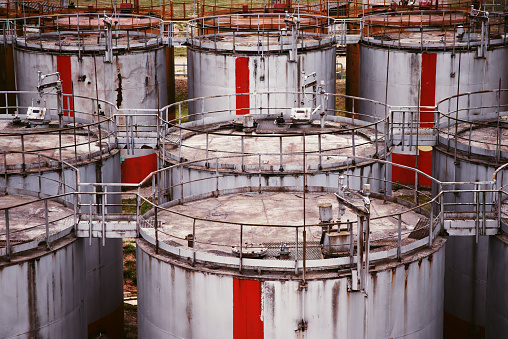Fistly, the U.S. Energy Secretary urged domestic oil refiners this month to not further increase exports of fuel like gasoline and diesel.
May be the Biden administration may need to consider taking action if the plants do not build inventories.
Secondly, the U.S. refiners have boosted oil product exports this month as domestic crude oil production rose and global fuel demand continued to recover.
Thridly, Granholm, urged seven refiners including Valero (VLO.N), ExxonMobil (XOM.N) and Chevron (CVX.N), to build supplies of fuels as the US enters peak hurricane season. Federal weather forecasters have projected an above-average Atlantic hurricane season, which can be a perilous time for refineries. Still-high gasoline prices remain a threat to Biden’s fellow Democrats ahead of the Nov. 8 midterm elections, when they hope to retain control of both chambers of Congress.
Fuel reserves
Granholm said the administration is talking with state officials along the East Coast. Where gasoline levels are at their lowest in nearly a decade. It is putting the gasoline and heating oil reserves in the U.S. Northeast, which hold 2 million barrels of fuel, on “active standby” for potential release; and preparing other emergency contingency actions.
We recommend: Agrovoltaic energy, solar panels coexist with crops.
Given the historic level of U.S. refined product exports, I again urge you to focus in the near term on building inventories in the United States, rather than selling down current stocks and further increasing exports. Granholm.
Exports
Also, high U.S. oil product exports have been a concern for the administration of President Joe Biden this summer; as gasoline prices briefly hit a record of $5 a gallon; helping drive inflation to 40-year highs. Gasoline prices have since fallen to about $3.86 per gallon.
Moreover, the administration hopes that companies will proactively address this need of building inventories, she said. If that does not happen, the administration will need to consider additional federal requirements or other emergency measures.
In a wide-ranging meeting with the same refiners in June, Granholm backed off a plan to ban U.S. fuel exports; the idea has never left the table.
Refiners said a ban could swamp domestic markets with fuel and cause some plants to cut output; which could decrease supply and put upward pressure on prices.
In addition, Northeast refiners import crude and fuels, trade that could be affected by an export ban.
Finally, the export talk is at best a distraction; at worst, counterproductive to price and supply.


